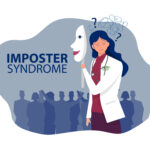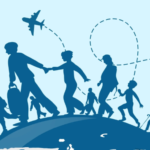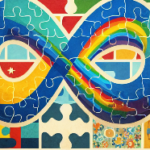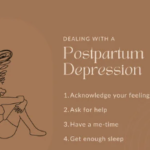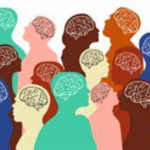Autism is a developmental condition affecting how individuals perceive and interact with the world, often making communication and social engagement difficult. For many African families, the growing awareness of autism has brought a mix of hope and frustration.
As diagnoses rise, so too does the need for effective therapeutic solutions. However, in Africa, and particularly in Nigeria, access to such therapies remains limited. While modern autism therapies, such as Applied Behavioral Analysis (ABA) and speech therapy, have gained global traction, they often prove costly and inaccessible for the average family in Africa.
Moreover, these techniques often fail to align with the cultural practices and realities of life on the continent. Yet, as with many challenges, there is an opportunity here: a merging of modern autism therapies with traditional African practices offers promising new paths forward.
The Limitations of Imported Autism Therapies
If you are a parent or caregiver of a child with autism in Africa, you may have encountered difficulties when trying to access professional support. Most modern therapeutic approaches to autism are imported from the West, where they are tailored to very different social, economic, and cultural contexts.
These therapies, while scientifically backed, often come with high costs. For example, ABA therapy—one of the most widely recommended treatments for autism—can cost thousands of dollars annually.
In countries where healthcare budgets are already strained, and where a significant portion of the population lives in poverty, such costs make modern therapies a luxury that only a few can afford.
Accessibility is another issue. In many African countries, autism services are concentrated in urban areas, leaving families in rural or remote locations without any support. This can be further problematic because of the lack of specialized schools and trained professionals. So, many parents feel isolated and unsure of how to help their children.
Beyond the financial and geographic barriers, there are cultural challenges. Western therapies, which often focus on individual progress and clinical settings, may clash with the communal and family-oriented nature of African societies.
For instance, therapies that emphasize one-on-one interactions between the therapist and the child can seem out of place in cultures where child-rearing is viewed as a community effort.
Blending Modern Therapies with African Traditions
Fortunately, innovative solutions are beginning to emerge across the continent. Africa is a place rich in tradition, and these local practices can be a powerful tool when merged with modern therapeutic techniques.
Many families are now finding that by blending traditional African practices with modern autism therapies, they can create a more holistic approach to autism care—one that is not only effective but also culturally sensitive and accessible.
For example, community-driven approaches are gaining popularity in regions like Nigeria. In these models, the extended family and broader community play a central role in reinforcing positive behavioral changes in children with autism.
Instead of relying solely on therapists, parents can be trained to be co-therapists, teaching them how to integrate therapy into daily life. This approach not only reduces the cost but also ensures that the child receives consistent support, even outside formal therapy sessions.
In some regions, traditional African practices like music, dance, and storytelling are being used as therapeutic tools. Music therapy, for instance, is particularly promising.
Yoruba talking drums, with their intricate rhythms and tones, are being adapted to help children with autism develop non-verbal communication skills. Similarly, storytelling—an important cultural practice across Africa—can help children with autism improve their understanding of social cues and build their language skills.
By integrating these practices with more formal speech therapy techniques, families are able to create a personalized approach that resonates with their cultural values.
In Kenya and South Africa, innovative schools are adopting this hybrid approach, combining Western educational models with African cultural practices.
These schools use traditional games and songs to enhance social skills while still incorporating evidence-based strategies such as visual schedules and sensory play.
Promising Areas for Development
If you’re looking for practical solutions to autism therapy in Africa, exciting developments are happening across the continent. One key innovation is the rise of teletherapy and mobile applications, which are making autism services more accessible to rural communities.
In Nigeria, several startups are developing mobile apps that offer guidance on managing autism, connecting parents with therapists remotely, and even providing diagnostic tools.
These digital platforms are creating a bridge between urban-based professionals and families living in remote areas, allowing children to access support without having to travel long distances.
Another promising development is the increased focus on training local caregivers, parents, and teachers to deliver autism therapy. In Nigeria, for example, the Autism Society of Nigeria (ASN) is partnering with international organizations to provide free training for parents and caregivers.
These training programs, which focus on teaching parents how to apply therapeutic techniques in the home, have proven to be highly effective in countries where professional therapists are in short supply.
This model empowers parents to take an active role in their child’s development while simultaneously reducing the need for costly professional services.
Governments and NGOs are also starting to recognize the importance of merging modern and traditional approaches to autism therapy. In Ghana, for example, the Autism Awareness Care and Training Centre (AACT) has collaborated with local healers and community leaders to reduce the stigma surrounding autism.
By involving religious and cultural leaders in the conversation, these initiatives are helping to change public perceptions of autism, encouraging families to seek support rather than hide their child’s condition out of shame.
The Road Ahead: Challenges and Opportunities
While these innovations are promising, there is still a long way to go. Stigma and misconceptions about autism remain widespread across Africa. In many communities, autism is still misunderstood, with some families turning to traditional healers who may attribute the condition to spiritual causes or curses.
This not only delays proper diagnosis but can also result in harmful treatment methods. Changing these deeply ingrained beliefs will require sustained public education campaigns and continued engagement with cultural and religious leaders.
Sustainability is another challenge. Many of the hybrid approaches mentioned above are still in their infancy, often relying on external funding or short-term pilot programs.
For these solutions to be scalable and sustainable, there needs to be greater investment from African governments, as well as a commitment from the international community to support local innovation.
The scalability of these solutions is one of the most significant opportunities ahead. By creating regional networks and fostering collaboration between African countries, we could see the emergence of a unified, continent-wide approach to autism therapy.
This would not only improve access to care but also encourage the development of African-led research into autism, ensuring that the solutions are as relevant as possible to the unique needs of the continent.
Conclusion
Africa faces significant challenges when it comes to autism care, but there is immense potential for homegrown solutions. By blending modern therapeutic techniques with traditional practices, African countries are developing innovative approaches that are affordable, accessible, and culturally appropriate.
This hybrid model of care offers hope to millions of families who previously had little access to support. As more governments, NGOs, and communities invest in these solutions, Africa could become a global leader in creating autism therapies that work not just in Africa, but around the world.
Empowering African solutions for African challenges is key. The innovations we are seeing today prove that with the right support and resources, Africa can create autism therapies that are both modern and deeply rooted in the continent’s rich traditions.


